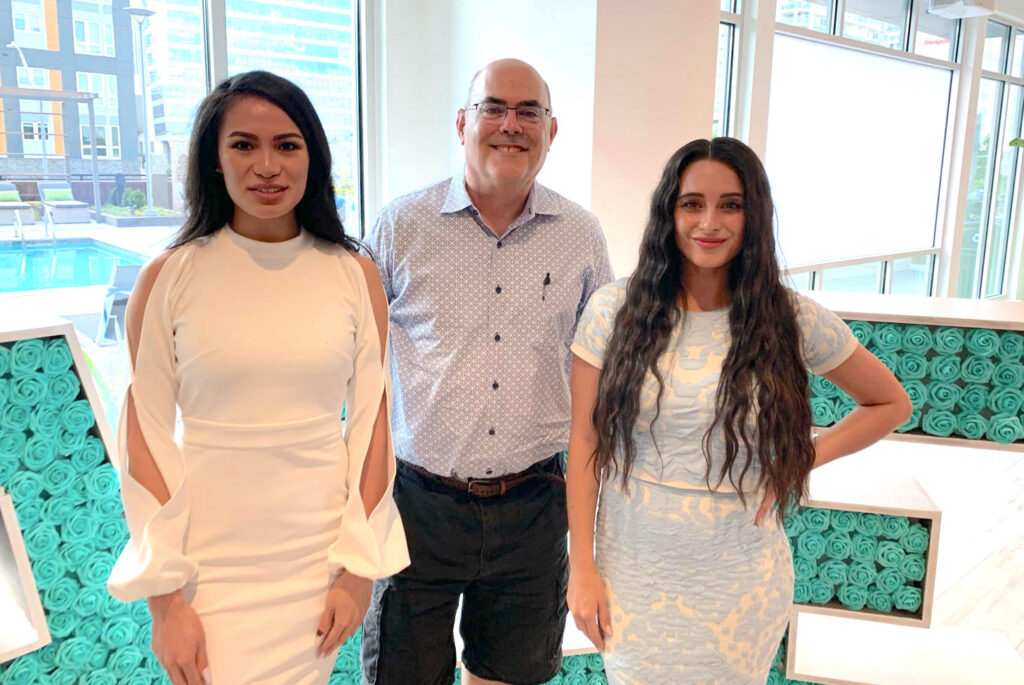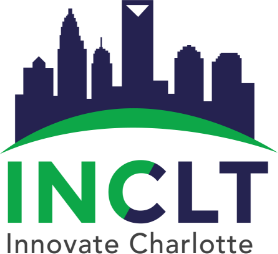Getting to know Mark Steinman
When Mark Steinman retired from corporate America, he wanted to give back to the business community. He just didn’t know where to begin.
“I began looking around town, and I was just astounded by the vibrant ecosystem in the startup community,” Steinman recalled. “One of the first things I did was go to a meeting for startup ventures at Packard Place. I had worked at the corner of Trade and Tryon — two blocks from Packard Place — for 17 years, and I didn’t even know it existed.”
Over the next few months, he found his way to other Charlotte entrepreneurial organizations, including INCLT, where he became one of our organization’s first mentors.

“I realized as I got further in my career that my responsibility as a leader was to coach and mentor the people who worked for me on how to grow their own careers,” said Steinman, who spent 20 years working for General Electric and 17 years at Bank of America. “Now I’m doing the same thing with our startups.”
We spoke with Steinman recently about his work with INCLT and the projects he’s taken on as he eased into retirement. Below are excerpts from our conversation.
Let’s talk about the work you’ve been doing with INCLT. What has that looked like from a mentorship perspective?
Recently, I’ve been working with three young entrepreneurs in their 20s with limited business experience who required a lot of guidance in how to approach the design of their product, the testing of their product, some of the go-to-market strategies of their product — things they haven’t thought of because they haven’t been through this experience before.
We meet with them about once a month, give or take. My process is to listen, listen, listen, and then ask questions. It’s not my role to direct them what to do. We are mentors, not decision makers. Instead, we ask questions to help them figure out the right path forward.
What has it been like to work with a team of mentors, rather than one-on-one with a founder?
It’s no different than working in a large company with executives and managers who have a variety of backgrounds and experiences. It’s an opportunity to tease out the strengths of the different mentors and how they could best help the founders — what I find is, people who have had long and varied careers can provide valuable insight in most situations.
You joined INCLT fairly early on in its existence. How has the organization changed since then?
At the time I joined INCLT, it was a startup itself, with the same growing pains that the companies we were mentoring had. One of those was that we kept saying we were founder-centric, but how do you know until you measure it? So we started measuring how engaged our mentors were.
We started rather simply — measuring whether mentors were attending meetings with our founders — to give us a gauge of whether we were truly founder-centric. There are other critical metrics, but just measuring this one aspect of engagement, as we came through our own maturity as an organization, allowed us to see whether we were adhering to the values we espoused.
Tell us about the mentors who helped you throughout your career. Who stands out in your memory?
I had one mentor who was a great leader, and his great expression was “role and goal clarity”. He used the analogy of a football team where, if everyone doesn’t play their position on the field or know what the goal is, you can’t score. He used to hammer that home, and I really took that to heart as a way to run an organization.
How has the COVID-19 pandemic impacted the companies you’re working with?
I’ve been working with each company that I mentor on how the pandemic specifically impacts their business plan and business model. For the most part, companies are finding their way through it. I don’t believe any of the ventures in INCLT have shut their doors because of the pandemic. It has affected the business plans of most and it can breed opportunity. One of them, a wedding planning startup called Bustld, has pivoted to launch a virtual wedding planning platform. Another company that was providing cleaning services for homes and apartments, Whystle, has pivoted towards commercial cleaning.
One of the benefits of being small is that you can be nimble. When you’re in a large company, it’s a much greater challenge to be nimble when something like this happens.
Now that you are retired, what does day-to-day life look like for you?
I just enjoy myself. I knew that when I got to retirement, I wanted to be able to do what I wanted when I wanted. Now I am.
As one example, I’m second-generation American. My paternal grandmother immigrated from Europe under very challenging circumstances. Her father came to America, leaving his wife and seven children in Europe. His plan was to earn enough money to bring them all over, too. Two years into those efforts, his wife died, leaving seven orphans in Europe. There is a tremendous story of perseverance about how they all eventually found their way to America and prospered. I heard the story as a child and spent six months of my retirement documenting it for our family and for future generations so the story wouldn’t be forgotten.
Mentors like Mark Steinman offer critical support to businesses in their earliest stages. When those businesses get the opportunity to grow, the entire Charlotte community benefits. Olga Muller, director of operations for local software development company Kepler Team, has seen that firsthand, both as part of a startup and as a member of the broader entrepreneurial ecosystem in Charlotte. “No business or founder can succeed in isolation. Success requires a collaborative approach and help from those who have been there and done that when it comes starting and building companies.”
If you’d like to support entrepreneurs in our community, consider the INCLT Venture Mentoring Service. We are currently accepting applications for both mentors looking to give back and founders in need of guidance. Learn more here.
